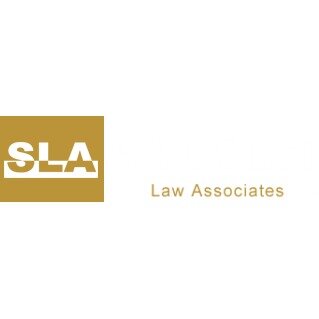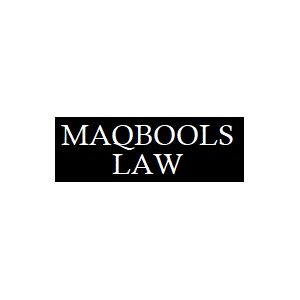Best Real Estate Contracts and Negotiations Lawyers in Lahore
Share your needs with us, get contacted by law firms.
Free. Takes 2 min.
Free Guide to Hiring a Real Estate Lawyer
List of the best lawyers in Lahore, Pakistan
About Real Estate Contracts and Negotiations
Real Estate Contracts and Negotiations involve legal terms, conditions, responsibilities, and financial transactions between buyers and sellers related to property buying, selling, and renting. Understanding these contracts' procedures and implications is crucial as any mistakes could lead to legal issues or financial losses.
Law in Lahore, Pakistan
In Lahore, Pakistan, the Ministry of Law, Justice & Human Rights regulates Real Estate Contracts and Negotiations. They adhere to both provincial and national legal frameworks. The Transfer of Property Act, 1882, and The Contract Act, 1872 are some of the key laws that govern this field.
Why You May Need a Lawyer
People need lawyers to understand complex legal jargon in property agreements and to ensure the contract protects their interests. Lawyers provide advice on potential risks, support in contract negotiations, help in resolving property disputes, ensure compliance with local laws, and assistance in the registration of the property.
Local Laws Overview
Local laws in Lahore dictate that both buyer and seller should disclose any information regarding the property, such as outstanding encumbrances, disputes, or any major installations. Tax implications are also a critical aspect which needs to be considered while drafting contracts. Stamp duty and capital value tax are imposed on property transactions, and non-compliance may lead to penalties. The Contract Act, 1872 also states the contract can be voidable if it involves fraudulent activities.
Frequently Asked Questions
1. What should be included in the sale agreement?
Key elements such as the property and agreement details, selling price, advance payment, possession and transfer date, and penalty clause in case of breach of contract should be included in the sale agreement.
2. Can I back out from a real estate contract?
Yes, but that could lead to forfeiture of your earnest money deposit in most cases unless backing out is due to a contingency specified in the contract.
3. Can I negotiate the price of the property?
Yes, negotiations regarding the property price are encouraged within the market dynamics and the buyer’s and seller’s willingness.
4. What if the property has undisclosed issues?
If any undisclosed issues with the property emerge after the agreement, you can file a legal case against the seller or broker for misrepresentation or necessary compensation.
5. Are verbal agreements considered legal?
According to the Contract Act, generally, verbal agreements are considered legal, but it is advisable to have a written agreement, especially for real estate transactions, for record-keeping and dispute resolution.
Additional Resources
For those seeking additional information, the Punjab Land Revenue Act is a useful point of reference. Websites of regulatory bodies like Lahore Development Authority (LDA), Punjab Revenue Authority, and Federal Board of Revenue (FBR) provide many resources and links useful for buyers and sellers.
Next Steps
If you need legal assistance in Real Estate Contracts and Negotiations, the initial step should be consultation with an experienced lawyer in the field of real estate law. Collect all the necessary documents and details about the property and your agreement, be mindful of all the obligations, and ensure that all discussions and agreements are documented in writing to safeguard your interests.
Lawzana helps you find the best lawyers and law firms in Lahore through a curated and pre-screened list of qualified legal professionals. Our platform offers rankings and detailed profiles of attorneys and law firms, allowing you to compare based on practice areas, including Real Estate Contracts and Negotiations, experience, and client feedback.
Each profile includes a description of the firm's areas of practice, client reviews, team members and partners, year of establishment, spoken languages, office locations, contact information, social media presence, and any published articles or resources. Most firms on our platform speak English and are experienced in both local and international legal matters.
Get a quote from top-rated law firms in Lahore, Pakistan — quickly, securely, and without unnecessary hassle.
Disclaimer:
The information provided on this page is for general informational purposes only and does not constitute legal advice. While we strive to ensure the accuracy and relevance of the content, legal information may change over time, and interpretations of the law can vary. You should always consult with a qualified legal professional for advice specific to your situation.
We disclaim all liability for actions taken or not taken based on the content of this page. If you believe any information is incorrect or outdated, please contact us, and we will review and update it where appropriate.

















